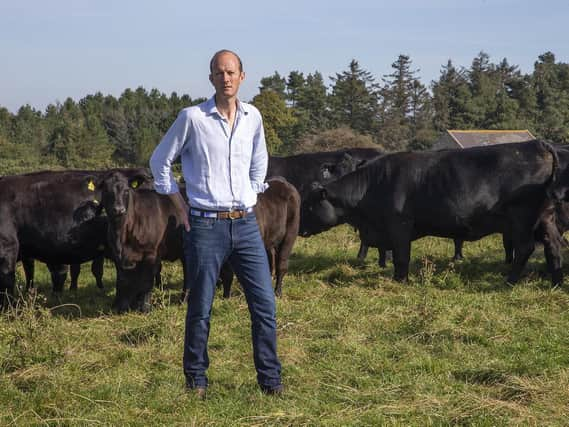Environment Bill delay is branded "hugely unhelpful" for the rural sector


The Environment Bill seeks to write environmental principles in UK law for the first time following Brexit, but the Government has delayed the passage of the Bill, blaming the pressures of dealing with the coronavirius pandemic leaving too little time for debate, so it is not expected to become law until the autumn.
Mark Bridgeman, president of the Country Land and Business Association (CLA), described the delay as “hugely unhelpful” for the rural sector.
Advertisement
Hide AdAdvertisement
Hide Ad“There is once again significant uncertainty over how and when Government’s flagship environmental plans can be delivered – with land managers across the country left in limbo.
“Farmers and landowners want to deliver positive environmental benefits on the land they manage, helping to reverse biodiversity decline and combat climate change. But many are relying on a move to the payments for public goods system, which is linked to key parts of the Environment Bill including local nature recovery networks,” Mr Bridgeman said.
The legislation includes setting targets for air quality, water, biodiversity and waste reduction, and outlining what standard must be achieved and by what date.
The Wildlife Trusts’ chief executive, Craig Bennett, said news the Bill would suffer more delays was “deeply troubling” and raised questions over the Government’s commitment to leaving the environment in a better state for the next generation. “Recently, the Prime Minister explicitly committed to taking urgent action to put nature on a path to recovery by 2030 as part of the UN ‘Decade of Action’,” he said.
Advertisement
Hide AdAdvertisement
Hide Ad“But over a year into the decade, very little progress has been made. To make up for lost time, the Government must substantially ramp-up its environmental ambition.
“This must start with putting a legally-binding target to reverse nature’s decline by 2030 on the face of the Environment Bill when it returns, and proper funding for landscape recovery to deliver it.”
Labour has tabled a series of amendments to the Bill, including one which requires ministers to allow parliamentary scrutiny of exemptions granted to allow plant protection products banned under retained EU law – such as neonicotinoid pesticides – where they are likely to have an impact on bees and other species covered by an environmental improvement plan.
But shadow environment secretary Luke Pollard raised concerns over the Bill’s progress being delayed. Mr Pollard said if the environment was a priority, the Bill could complete its passage in this session of Parliament.
Advertisement
Hide AdAdvertisement
Hide Ad“We don’t need a go-slow govern-ment on the environment, we need one that recognises the urgency of the crisis and doesn’t go backwards, like they’re doing by lifting the ban on bee-killing pesticides.”
Environment minister Rebecca Pow pledged that the delay to the Bill does not reduce the Government’s commitment on the environment.
She told the Commons: “As members of the House are aware, the immense pressure put on the parliamentary timetable by the Covid pandemic means this Bill will sadly need to be carried over to the second session.”
Comment Guidelines
National World encourages reader discussion on our stories. User feedback, insights and back-and-forth exchanges add a rich layer of context to reporting. Please review our Community Guidelines before commenting.